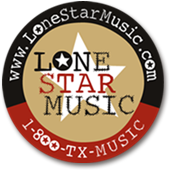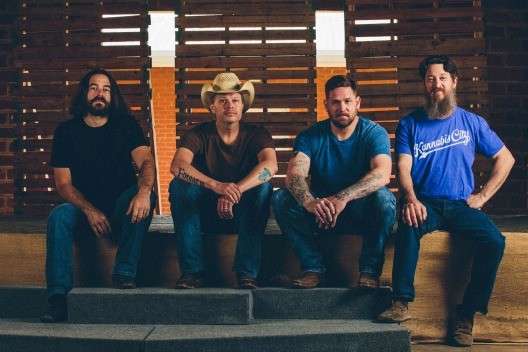Between the East and West Coasts, and still a good distance from the third coast of Nashville, is found a place known as the Dust Bowl. It’s a place where art meets the everyday life of common America, and it has produced some of the most distinctive American art ever. The tradition of that region has produced the music of Woody Guthrie. It provided the root system for the genius of Merle Haggard. It is the tradition of Bob Childers, a Red Dirt icon, who learned how to present the forgettable man unforgettably, and it’s the tradition that can be heard in the songs of Jason Boland. On his new album Comal County Blue, Boland deals with life, politics and the human experience informed by that Oklahoma tradition and his own personal experience. In the opening track “Sons and Daughters of Dixie,” Boland addresses the struggles and anger of those who lived through Hurricane Katrina, expressing defiance against authority, while affirming the strength and ability of the average person to overcome (“The back shall not be broken of the soul that won’t be killed / If there’s one thing a Southern man knows how to do is to rebuild.”) Boland’s well-known struggles with alcohol make their way into Comal County Blue as well. Though many artists evoke Haggard’s name when discussing their influences, few have lived on the edge of destruction like he has, only to come back from that edge with songs that leave the listener with greater insight into the soul of those that struggle against their demons. In “Bottle By My Bed,” Boland reflects on four years of sobriety after coming dangerously close to drinking himself into an early grave. He chronicles his transformation from a self-professed liability to a sentient being (“Now I’m going back home / It’s down this path I’m led / And I’m no longer empty like the bottle by my bed”). The first single is the title track, “Comal County Blue.” It’s a gentle song that puts the listener in the seat right next to Boland with the window rolled down. It’s like sharing a conversation as he and the listener escape the occasionally suffocating contentment of small town life to experience all that the big city has to offer. (“Tonight I’m rolling up north / Back to where I paid a due /Tonight the answer’s Austin / For the Comal County blue”). Though Jason is the primary songwriter and singer, this is no one-man show. “Outlaw Band,” narrates the vision to which Jason Boland and The Stragglers have always been true: that of self-reliance, determined professionalism and bringing the best music possible to fans. The song showcases the Stragglers’ Noah Jeffries on searing fiddle and mandolin parts, while the rhythm section of Brad Rice (drums) and Grant Tracy (bass) provide an unfailing foundation. Roger Ray (guitar, pedal steel) also lets loose on the dobro, perfectly complementing the groove that is sure to raise the roof at future Stragglers’ shows. The song captures the musicality at the core of the energy that is Jason Boland and The Stragglers. The esteem that Jason Boland and the Stragglers’ contemporaries hold him in is evident by their participation in Comal County Blue. Robert Earl Keen duets with Boland on “The Party’s Not Over,” reassuring listeners that the party will always “come back around.” “Alright,” co-written with Cody Canada of Cross Canadian Ragweed, is an infectious song with a vocal chorus that soars. Producer Lloyd Maines (Dixie Chicks, Robert Earl Keen, The Waybacks) gets the best performance out of the band since Pearl Snaps. The album was tracked live in the studio, and under his deft touch, the band delivers a musical tour de force that is at times subtle and at times rollicking. It’s that musicianship, along with Jason’s increased maturity as a lyricist that makes Comal County Blue Jason Boland and the Stragglers’ finest effort to date. While at first glance Jason Boland and the Stragglers’ music may seem easy to stereotype as Texas or Country, intent listening makes it harder to categorize their music easily, revealing the influence of the land and life that got them to where they are. Boland knows he can’t shy away from questions about how to classify his music but simply states, “The Chinese don’t call it Chinese food, its just food. I’m just making music.” When asked what the record is about, Boland steams, “It’s about drinking, it’s about being sober, it’s about replacing vices with vices, it’s about divorce, it’s about the silenced, its about the sacrificed souls of Americans, its about Galileo being right! And it’s about working harder than we’ve ever worked.”
02/18/2011 - Oklahoman Jason Boland Proud Of Texas Country Success -
Read More
12/04/2010 - Night of red dirt on tap -
Read More
12/01/2010 - For Jason Boland, Cain's is as good as it gets -
Read More
05/08/2010 - Jason Boland, Brandon Jenkins to play Muskogee’s new Okie Country Music Fest -
Read More








 Total Reviews: 427
Total Reviews: 427
















































